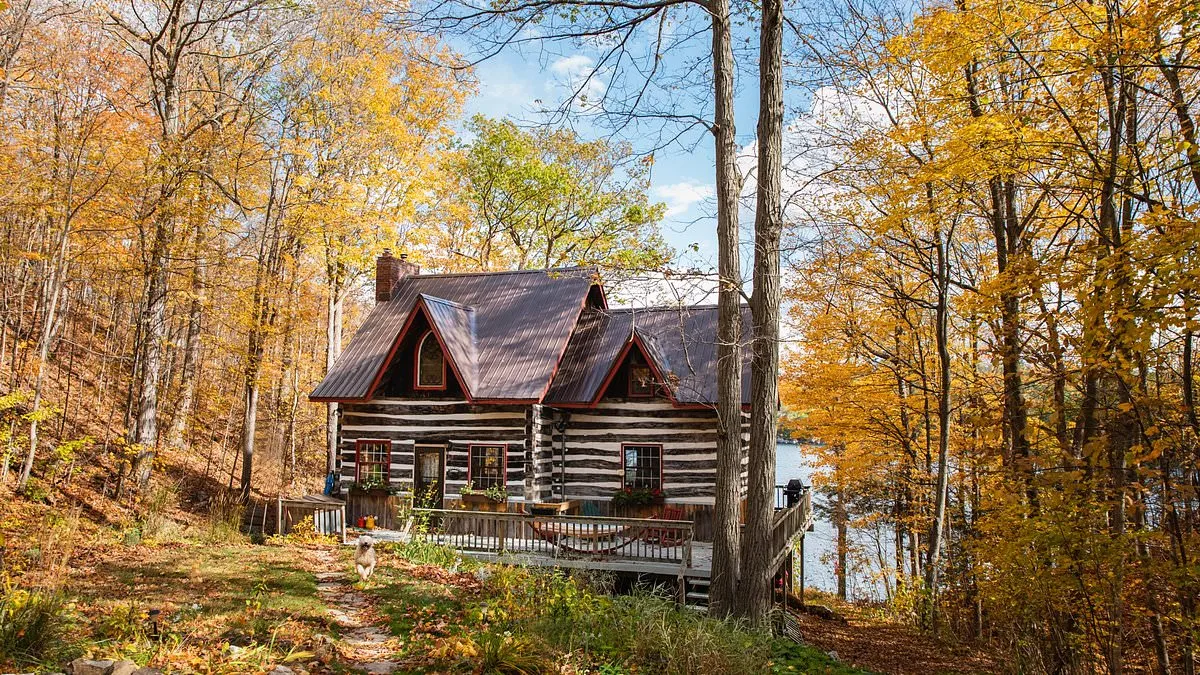
A renowned longevity expert has shared his remarkable journey of reversing his biological age by a decade, simply by relocating his family. Dr. David Furman, an associate professor at Stanford University and head of the prestigious 1000 Immunomes Project, made significant lifestyle changes that led to this astounding transformation.
Ten years ago, Dr. Furman resided in a bustling California city where he frequently battled severe migraines, relying heavily on ibuprofen for relief. He described his life as "pretty stressful," and he suspected that his body was aging in "hyperdrive." His persistent headaches were not just a nuisance; they were a warning sign of more serious underlying health issues.
To validate his concerns, Dr. Furman conducted a blood test to check for inflammatory markers. The results were alarming: although he was biologically 39, his body exhibited the inflammatory age of a 42-year-old. This revelation motivated him to take immediate action, as he recognized that continuing his current lifestyle could lead to premature aging and increased susceptibility to chronic conditions such as diabetes, heart disease, and cognitive decline.
Dr. Furman made the bold decision to move his family to the serene woods of Southern California. The family relocated to a two-bedroom cabin near a creek in the San Gregorio area, only a half-hour drive from Stanford. Their new home was devoid of modern conveniences like chairs, plastics, and industrial cleaning products. Moreover, they eliminated their screen time and established a lighting routine where bright overhead lights were turned off by 7:30 PM, opting instead for candles to create a calming atmosphere conducive to sleep.
Dr. Furman emphasized, "We haven't evolved looking at a screen and having an electrical light and sitting in a chair." Numerous studies support his claims, indicating that excessive screen time can adversely affect cognitive function, reduce physical activity, and disrupt sleep patterns. For instance, a 2021 study published in Springer Nature highlighted the negative impact of increased screen usage on learning and mental health among young adults.
To further enhance his health, Dr. Furman adopted a rigorous exercise regimen that included performing 10 to 15 pull-ups daily before work. On his days off, he engaged in outdoor activities with his children, such as playing in the dirt, fishing for salmon, and foraging for berries. His meals were also carefully curated; he packed nutritious lunches consisting of salmon lettuce wraps accompanied by blueberries—foods rich in magnesium, omega-3 fatty acids, and antioxidants known to support brain health.
In addition, Dr. Furman prioritized fresh, organic foods like raspberries and broccoli to nourish his gut microbiome. Research indicates that a balanced microbiome is linked to improved mental health and a reduced risk of cancer. Raspberries provide vital antioxidants and vitamin C, while broccoli is recognized for its fiber content and potential cancer-fighting properties due to the compound sulforaphane.
After three years of living in the forest and implementing these lifestyle changes, Dr. Furman decided to re-evaluate his health by testing his blood for inflammatory markers again. The results were astonishing: at 42 years old, he had successfully reduced his inflammatory age to 32—effectively de-aging himself by a decade. This incredible outcome may be attributed to his immersive experience in nature, often referred to as "forest bathing."
A 2019 study by the University of Exeter revealed that spending at least 120 minutes in nature each week significantly enhances overall wellbeing. This research analyzed data from over 20,000 participants and concluded that those who regularly engaged with the outdoors reported better health outcomes compared to those who did not.
Dr. Mathew White, an environmental psychologist at the University of Exeter, stated that engaging with nature for two hours weekly is a realistic target for most individuals. This time can be broken into shorter visits, making it manageable for busy lifestyles. The study found that spending time in various natural settings, whether on a beach, in an urban park, or in woodlands, provides similar health benefits.
Dr. Furman’s journey highlights the profound impact that lifestyle changes, particularly those involving nature and dietary adjustments, can have on health and longevity. His story serves as an inspiring reminder of the potential we all have to improve our health and well-being through mindful choices.